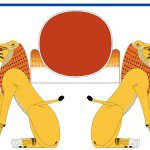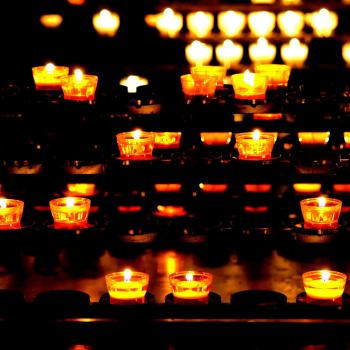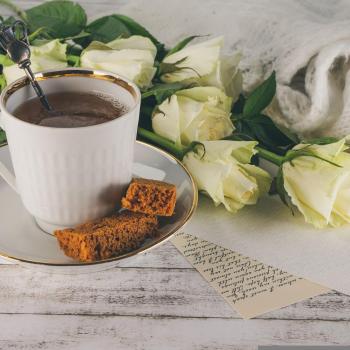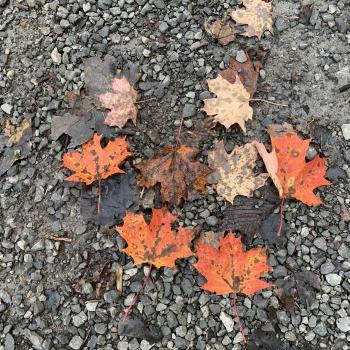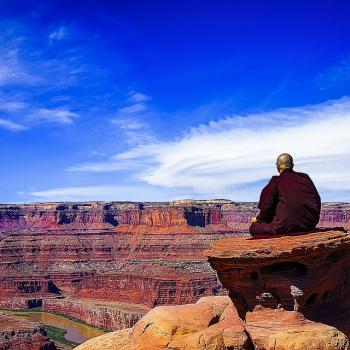Why do we feel the need to even ask this question, supposing as it does that we might hit, somehow, on the right answer? Religions throughout known human history all tend to try and tackle that issue of the end of life. Why? Because it might explain to us how to live in this one.
I rather feel that the lack of insight should have been a clue all along that we really aren’t supposed to know. To be human is to live and die without knowing if there are second chances, judgments, implications. For me, that’s a really important part of what it means to be human. Rather than making up stories to fill in the gaps, I think we should be embracing the uncertainty.
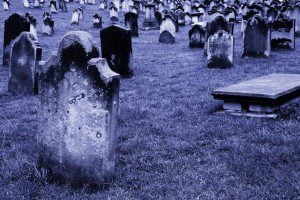 Lots of religions, past and present, do have stories about life after death. Punishment and reward feature heavily. Offer people an image of paradise and tell them how to get in, and if they believe you, they will act accordingly. Thus the will of deities gets a bit of extra weight. We might not see much evidence of divine intervention in this life, but They/He/She will be waiting when you die, to pass judgement, and what you get next is going to depend on how you did.
Lots of religions, past and present, do have stories about life after death. Punishment and reward feature heavily. Offer people an image of paradise and tell them how to get in, and if they believe you, they will act accordingly. Thus the will of deities gets a bit of extra weight. We might not see much evidence of divine intervention in this life, but They/He/She will be waiting when you die, to pass judgement, and what you get next is going to depend on how you did.
Off the backs of these stories, cultures have justified (and still justify) homophobia, burning heretics, smiting unbelievers, starting ‘holy wars’, suicide bombers, mistreatment of women, and all manner of environmental abuses. The hoops we invent to jump through in order to please gods become more important than pragmatic and sustainable living, when all your attention is focused on getting a ticket to a really good afterlife. There are so many things it would be impossible to justify if we didn’t believe in life after death. Martyrdom, particularly.
We have the tools, intellectually, to figure out a lot about life on earth and the history of the universe. We probe into the mysteries of our own bodies, the marvels of existence. Death is a closed door. Sometimes we get glimpses, especially from those who have died medically and come back, but we don’t really know what those experiences mean. If there are no gods, and no afterlife, then of course we could not know what comes next. If there are deities who wanted us to know, or be able to find out, it might be fair to assume they could have set things up to be a good deal clearer. We know where babies come from…
Death is a great mystery. It refuses to give us tidy answers, meanings and rationalisations for how we live. Death, to my mind, demands that we live as fully as we can, knowing that our days are numbered and finite. Death allows for birth, and perhaps re-birth.
Stories about the afterlife are such a convenient tool for people who want to control our behaviour in this life. God doesn’t like that sort of thing, you won’t get to the good place if you keep doing that… Think how much virtue and vice in conventional religion has everything to do with sexual practice, while violence and cruelty, if done in the name of deity, has been historically all too acceptable.
As a Druid, I feel it is much better to try and understand the mysteries of life on its own terms, not with reference to a speculative hereafter. I enjoy a bit of speculation and pondering as much as the next person, but I am not prepared to have what I do in this life shaped by what I imagine comes next. To be a Druid is to live this life well, honourably, deeply. Not by the rules of an ancient book, but by pragmatic standards, humanistic standards, reasoned out as best I am able. If there turns out to be judgement or reincarnation, or some other thing, I feel I will be as prepared for that as I could be, by having undertaken to live well. If this life is all we get, then I will have lived it well. It is enough for me.
This post is part of the Patheos-wide series What Do I Really Believe?
Druid Thoughts is published on occasional Wednesdays on Agora. Follow it via RSS or e-mail!


